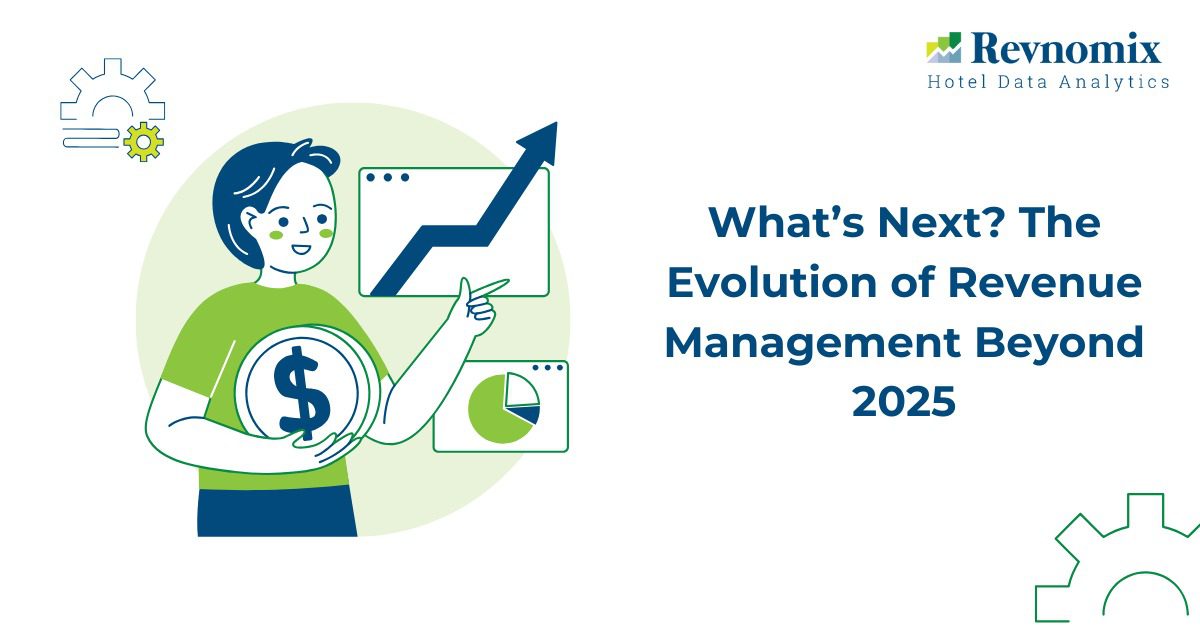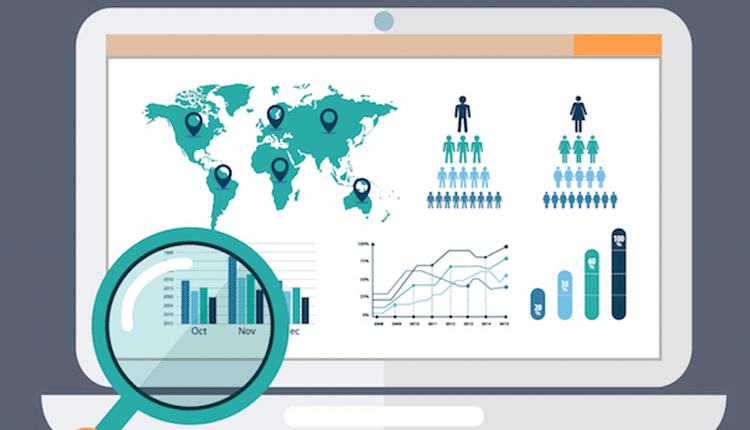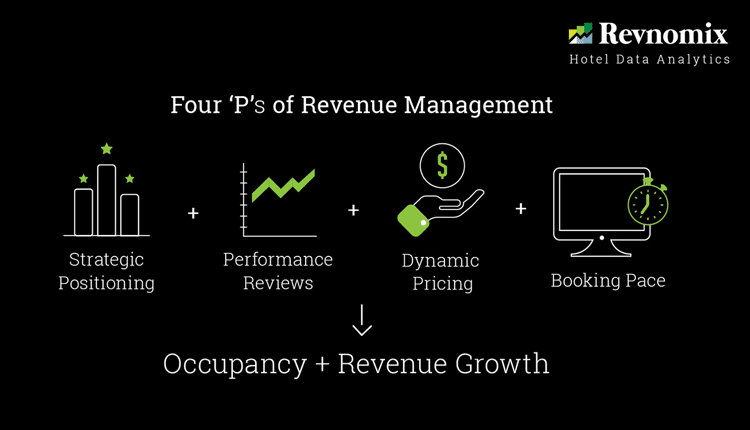The hospitality industry is changing rapidly, and revenue management is evolving with it. With technological advancements, hotels are now leveraging data-driven strategies to maximize profitability. Beyond 2025, AI-driven revenue optimization and automation will play a crucial role in shaping the future of hotel revenue management.
1. The Future of Revenue Management in Hospitality
Hotels can no longer rely on traditional pricing methods. The future of revenue management will be shaped by smart algorithms, data-driven insights, and automation.
Key Trends Shaping the Future:
1. AI and machine learning for automated revenue decisions
2. Real-time dynamic pricing algorithms
3. Increased focus on personalized pricing for guests
4. Integration of predictive analytics in hospitality
2. AI-Driven Revenue Optimization: The Game Changer
Artificial intelligence is transforming hotel pricing strategies by automating data analysis and revenue decisions.
Benefits of AI in Revenue Management:
1. Automates demand forecasting and pricing adjustments
2. Enhances accuracy in predicting guest behavior
3. Reduces manual errors and improves efficiency
How Can Hotels Use AI for Revenue Growth?
1. Implement AI-driven software for pricing optimization
2. Utilize machine learning to analyze past booking patterns
3. Automate reporting for better decision-making
FAQ 1: How does AI improve revenue management for hotels?
AI helps analyze market trends, predict demand, and automate pricing decisions, leading to higher occupancy and revenue.
3. Dynamic Pricing Algorithms: The Future of Rate Adjustments
Hotels must move beyond fixed pricing models. Dynamic pricing algorithms allow real-time rate adjustments based on market demand, competitor rates, and booking trends.
Why Dynamic Pricing Matters:
1. Adjusts hotel rates based on real-time demand
2. Helps maximize revenue during high-demand periods
3. Avoids unnecessary price drops during low occupancy
How Hotels Can Use Dynamic Pricing Effectively:
1. Invest in AI-powered pricing tools
2. Monitor competitor pricing and market trends
3. Adjust rates dynamically based on customer behavior
FAQ 2: What is dynamic pricing in hospitality?
Dynamic pricing adjusts room rates in real time based on demand, competitor prices, and market conditions.
4. Predictive Analytics in Hospitality: Forecasting the Future
Predictive analytics uses historical data and AI to forecast future booking patterns. This helps hotels optimize room pricing and inventory management.
Advantages of Predictive Analytics:
1. Improves demand forecasting accuracy
2. Helps identify peak booking periods
3. Reduces reliance on guesswork for pricing decisions
How Hotels Can Implement Predictive Analytics:
1. Use historical booking data to predict future demand
2. Leverage AI to analyze guest booking behavior
3. Adjust pricing and promotions based on forecasted demand
FAQ 3: How does predictive analytics help hotels?
Predictive analytics helps hotels forecast demand, optimize pricing, and improve occupancy rates.
5. Personalized Pricing Strategies for Enhanced Guest Experience
The future of hotel pricing isn’t just about demand—it’s about offering the right price to the right guest at the right time.
Key Aspects of Personalized Pricing:
1. Adjusting prices based on guest booking history
2. Offering discounts to loyal customers
3. Customizing rates based on browsing behavior
How Hotels Can Implement Personalized Pricing:
1. Track customer preferences and past bookings
2. Use AI-driven analytics to create customized offers
3. Offer tailored discounts for repeat guests
FAQ 4: What is personalized pricing in hotels?
Personalized pricing adjusts rates based on individual guest preferences, booking history, and behavior.
6. Hotel Revenue Automation: Reducing Manual Work
Automation is the key to making revenue management more efficient. Hotel revenue automation eliminates the need for manual data entry and analysis.
Benefits of Revenue Automation:
1. Saves time and reduces human errors
2. Enhances accuracy in forecasting and pricing
3. Allows real-time pricing updates without manual intervention
How to Automate Revenue Management?
1. Use AI-powered revenue management systems
2. Integrate pricing tools with hotel management software
3. Automate reporting and data analytics
FAQ 5: Why is automation important in revenue management?
Automation improves efficiency, reduces errors, and ensures real-time pricing adjustments without manual intervention.
Final Thoughts
The future of revenue management goes beyond traditional pricing strategies. With AI, predictive analytics, and automation, hotels can maximize revenue, enhance guest experiences, and stay ahead of the competition.
For expert insights and solutions, explore Revnomix Solutions, a leader in AI-powered revenue optimization for hotels.
Check out Revnomix’s Google My Business and Facebook page to see what clients say about their services.







